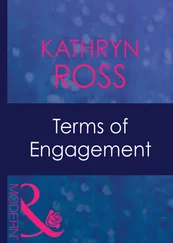Mary bit off the thread and held up the skirt. The school had provided the pattern and the finished garment was surprisingly unattractive; she couldn’t imagine her daughter consenting to wear such a thing. She dropped it on the floor. Tomorrow, she thought. Tomorrow I’ll put it in the mail. Then she walked to the piano and pulled out the bench and sat on it. The moon is a rock, Mary thought, but you could see how it loved the place it came from in the way it wouldn’t let go of the tides. The moon loved water. Whereas water had a more complicated relationship with rock — without rock, the water could be everywhere. Mary opened her port all the way and began to play the Moonlight Sonata. She had never been any good, she knew that, but she also knew this piece by heart. The further into it she got, the louder she played.
At some point she saw a light go on in the nearest neighbor’s house. The nearest neighbor was too far away and too shielded by massive plantings of ornamental shrubbery and shade trees to be able to hear Mary play. Then again, she was using the pedal and had the lid propped open.
PENNY AND BLUE-EYES WERE KNEELING BY THE FIRE IN Penny’s room; they were toasting crumpets the way young men did in the leather-bound books about school life in England. In the books, as at St. Foy, one young person’s future was always going to turn out better than the other’s.
“What’s that?” Penny asked, cocking her head.
Penny was an “old girl”—she’d lived at St. Foy for as long as she could remember. Her room was about four times the size of Blue-Eyes’s and had a fireplace, a sitting area with a camelback love seat upholstered in gold velvet, a four-poster canopy bed, and a Queen Anne highboy. Penny also had an aquarium containing a small pink castle and a large brown fish that stuck itself to the side of the tank with its mouth. Pets were against the rules at St. Foy, but Penny, as she’d told Blue-Eyes, was a rule breaker.
“What’s what?” Blue-Eyes asked, oblivious to the music leaking from her port. The problem with jamming the apparatus the way she did was that you could do it once too often and then you couldn’t make it stay shut ever again.
“Let’s get something straight,” Penny said. “If you keep pretending not to know what I’m talking about like that, out the door you go. No!” Penny added, and she sounded angry. “That is exactly what I mean. That sad expression. Like you’re a poor little orphan girl.”
“It’s my mother,” Blue-Eyes admitted. She had been puzzled, not sad, and was surprised by Penny’s outburst. It wasn’t in Blue-Eyes’s nature to pretend anything.
“Your mother is a poor little orphan girl?”
“No, my mother is the one who is playing the piano.”
“Turn it up,” Penny said. “Is that really her playing? Your mother can play the piano?”
“She’s trying to make me feel bad.”
“Why would she do that?” Penny asked. “She’s your mother. Doesn’t she love you?”
“She does,” Blue-Eyes said. “That’s the whole problem.”
Her mother owned a highboy like the one in Penny’s room — it had come to her along with the cat clock and the many other articles of furniture she inherited when her parents got divorced. This was what her mother’s life was like, Blue-Eyes thought, a large piece of furniture where almost all the drawers held no surprises except for the least reachable top middle drawer — the one with a cockle shell carved in the wood — which was filled to the brim with things Blue-Eyes never saw her mother wear and knew she never would, white cotton underpants, shoes with stiletto heels, a fancy pink prom dress, a broken pair of eyeglasses.
Penny yanked Blue-Eyes’s hair back from the port and rested her ear against the hole, letting the music pour out of it and into her head. “Lucky you,” she said. “If I had a mother like yours I’d be the happiest girl alive.”
EVEN AFTER THEIR SON BECAME FAMOUS AND BEGAN sending them money, Eddie’s parents remained on the street. Most of the people who’d been living there when he was a boy had moved away, some of them into fancier houses, some of them into retirement communities or nursing homes, some of them into the ground. Of the original families only the Darlings and Mr. O’Toole and Carol XA remained. Mary’s parents had gone their separate ways years earlier, Mrs. O’Toole died the year the street became infested with insects so small they could fly through anything, the Duffys moved to be closer to Roy and Cindy and the grandchildren. Aside from the photographer, no one knew where Miss Vicks had been going when she left, though everyone registered her absence. She didn’t really have any friends, yet the street felt empty without her and her little red dog. They were more reliable than a clock for telling time.
One night not long after Miss Vicks disappeared, Carol XA overheard a whining noise coming from inside number 49 as she was flying past the porch. When she went inside she found the dog sitting in the middle of the living room carpet, obviously hungry but otherwise none the worse for wear. Carol took him home with her to number 37.
Pet care didn’t come naturally to the robots — they found it difficult to fathom the relationship between humans and animals. Sometimes we befriended them, sometimes we made things out of them like shoes or belts, often we ate them. Occasionally humans took the form of animals and when this happened they were always kinder than regular human beings.
Carol copied Miss Vicks’s practice of “taking the dog for a walk.” She enjoyed the slow, stately rhythm dog walking induced in her mechanism, the ritual pause, the insertion of her hand into the plastic bag, the stooping down and the scooping up, the tying of the knot and the ultimate disposal of the neat little bundle. Because she had no sense of smell there was nothing unpleasant about the transaction. All the inhabitants of number 37 liked to make the dog do tricks but it was Carol who truly seemed to love the creature. She could be seen petting its sleek russet head, nipping her front teeth together in involuntary expressions of tenderness exactly like Miss Vicks used to do.
Miss Vicks’s leaving was a blessing in disguise — that was the general opinion of everyone on the street. Having a pet made the robots more human, which in turn brought out the best in the humans. Mrs. Darling knit the dog a long green sweater. Mr. O’Toole never left home without a pocket full of treats. Eddie’s father made sure there was a bowl of fresh water on the sidewalk by the foot of the front steps at all times. As for the robots, they knew Miss Vicks was never coming back.
Eddie’s parents had stayed on the street because his mother wanted to be in the same place if her boy returned, either as a person or a spirit, she didn’t care which as long as she got to see him again. His father had already reserved a space for himself and his wife in the new retirement community that was said to be going up where the Woodard Estate used to stand. In the meantime he busied himself maintaining the lawn. It took almost every ounce of his energy to push the mower up the hill and then make sure it didn’t get away from him going back down. Everyone else on the street had abandoned the idea of having a lawn, paving over the grass or adding an extension that displaced the yard completely. Many of the new people were young families with children, not unlike the way it had been when Eddie was a boy, though the children were different, less apt to play outdoors.
Maintaining the front lawn had become a point of pride with Eddie’s father, who wanted to set an example for the young families, to show them that just because the world often seemed to reward ugliness was no excuse to give up on beauty. Granted, the ivy plant in the Italian cachepot on the bow-window sill was no longer a living thing but made of plastic. The lawn was mostly stringweed, mowed to look like grass. When it got cut it didn’t smell sweet like grass, either. It smelled fishy, similar to algae.
Читать дальше












